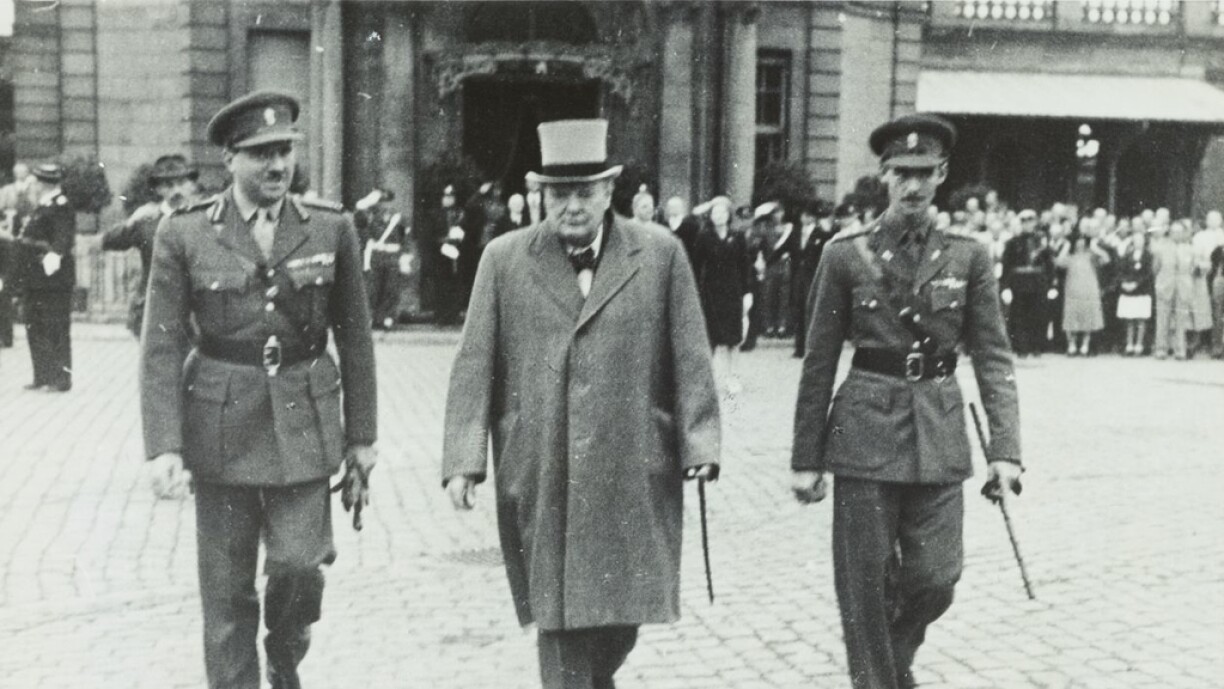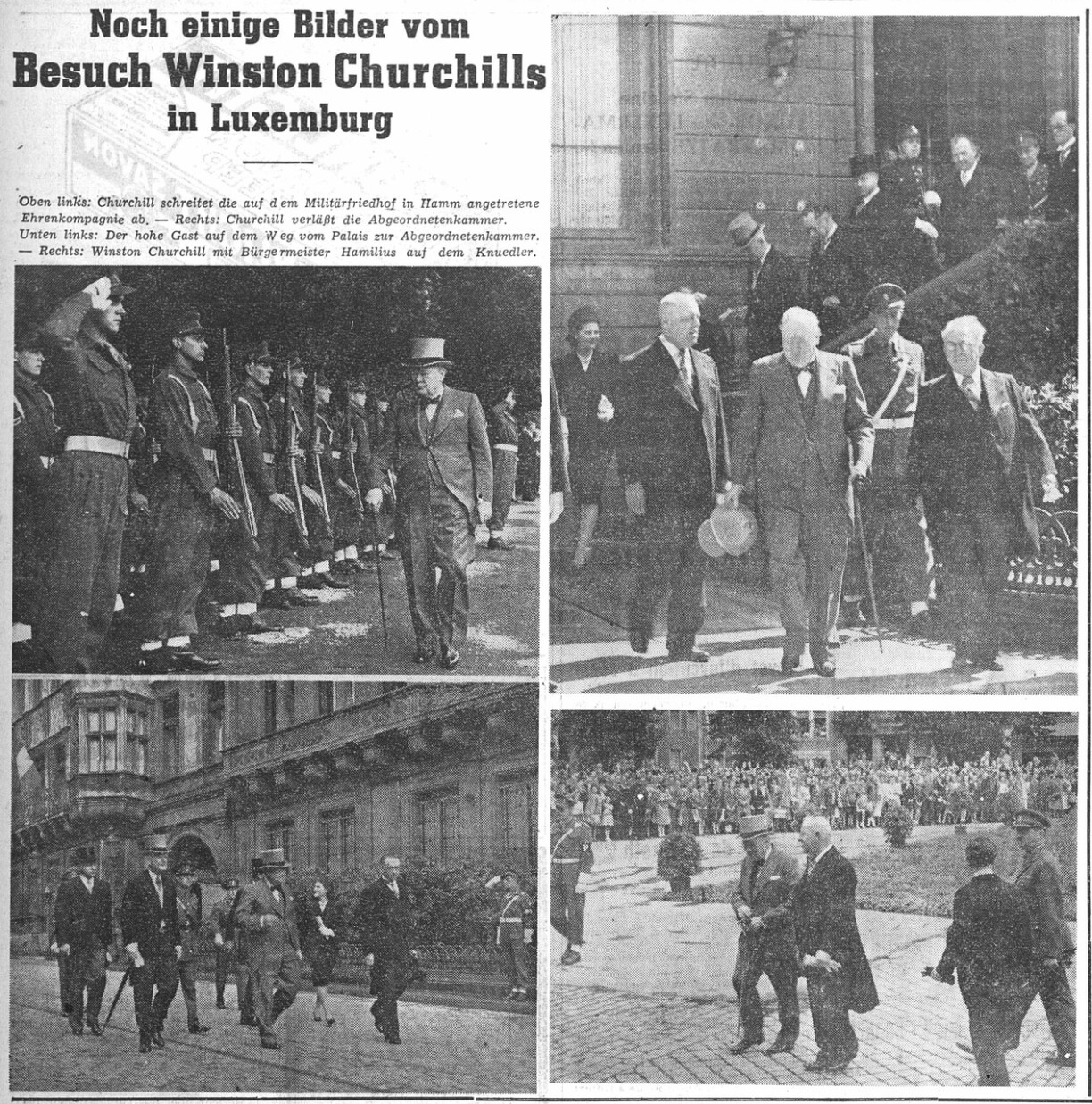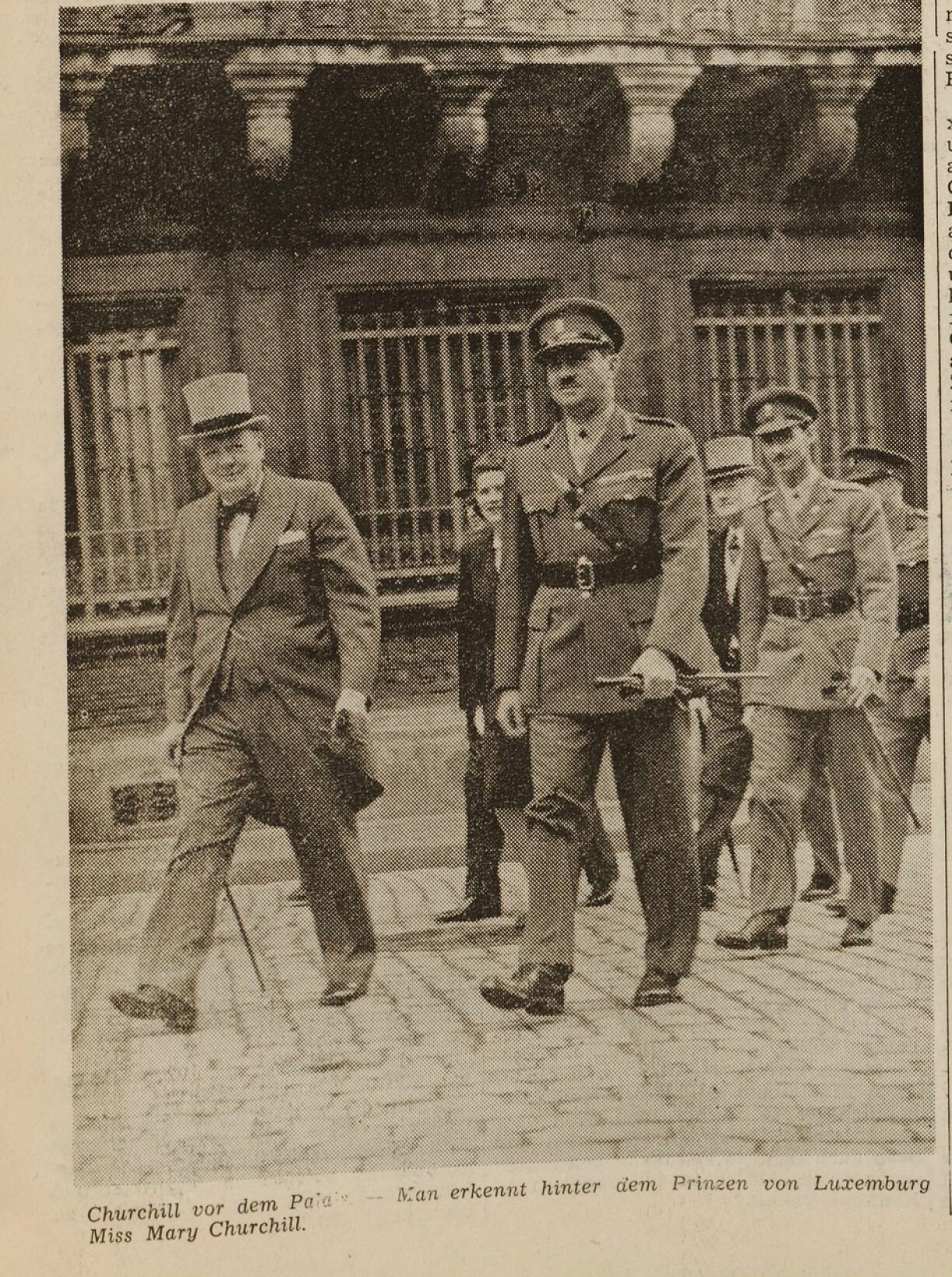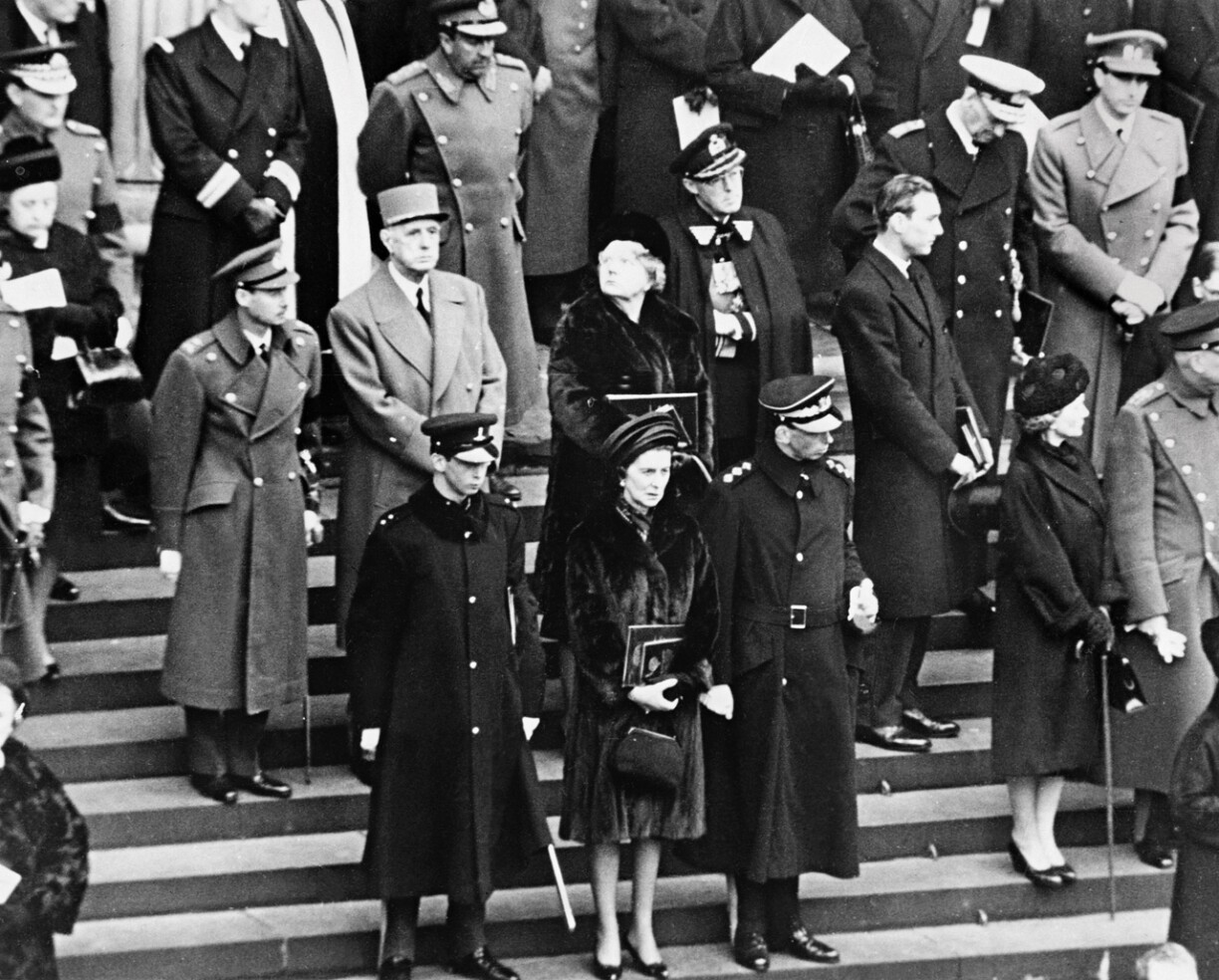
https://www.youtube.com/watch?v=FKSxywpNNDc
In perhaps a tenuous link, we’re going to explore Churchill through a Luxembourgish lens. The first episode of the Crown depicts Churchill’s state funeral, the first state funeral granted to a non-royal since 1935, in 1965. Whilst the Netflix show might not depict him actually, we do know that late Grand Duke Jean was one of 110 dignitaries present at the funeral – and on the steps scene recreated in the show. It’s always interesting to find a reference (however disguised!) to Luxembourg in popular culture, so using this reference, let us explore Churchill’s relationship with Luxembourg.
Small political note - Winston Churchill is a complicated figure who is both celebrated for his actions during WWII and condemned for many of his other policies, including but not limited to the Bengal famine in 1943. We could explore how to discuss historical figures that are overly celebrated ...but that wouldn’t necessarily relate to the article at hand. As it stands, Luxembourgers at the time were very appreciative of Churchill.
For Luxembourgish people, Churchill was considered a beacon of hope during the Second World War. Whilst Churchill was not reelected as prime minister in 1945, he would later return to Downing Street after the Atlee government. During his ‘downtime’, Churchill proceeded to visit a number of countries. In this case, the wartime PM visited Luxembourg in July 1946 – to the great jubilation of the Luxembourgish people.
The newspapers of the time covered the visit extensively. The gushing coverage ranged from titles such as ‘Good Old Winston Churchill’ in the Obermosel Zeitung to ‘Luxembourg’s big day’ in the Escher Tageblatt. The visit made such a mark on Luxembourg that Churchill’s daughter Mary (who accompanied her father) was later congratulated by the Luxemburger Wort for giving birth in 1948.
The event was certainly a big deal for Luxembourg and the country certainly rolled out the red carpet for Churchill’s visit. The former-prime minister came to Luxembourg on Sunday 14 July and Monday 15 July, arriving in Frisange from Metz. The time came and Churchill arrived in Frisange several hours late, but this did little to quell the excitement of the crowds that had gathered from far and nearby to catch a glimpse of the British statesman. The Escher Tageblatt wrote that it was a sign of “rare loyalty, devotion, and thankfulness” that Luxembourgers gathered for the historic moment for so long, even despite difficult weather conditions. The crowds were “delirious with joy” at the sight of Churchill to the extent that the mayor was unable to begin his welcoming speech.
As the newspaper explains, Luxembourgers countered Churchill’s famous ‘We shall never surrender’ statement with ‘We shall never forget’. Luxembourgers were still experiencing the unadulterated joy of the liberation, with Churchill’s visit barely a year after Grand Duchess Charlotte returned to her homeland.

From Frisange, Churchill travelled on to Luxembourg City by car, where he was met at Place de la Gare, greeted by Prince Prince Félix of Luxembourg and Hereditary Grand Duke Jean. On to his victory parade through the capital – greeted by more crowds desperate for a sighting of Churchill -, he eventually arrived at the Grand Ducal Palace. Grand Duchess Charlotte greeted her esteemed guest and bestowed upon him the Military Medal, the highest military decoration in Luxembourg and the Grand Cross of the Order of the Oak Crown. As the crowds chanted “Churchill” and sang “God save the King”, the “Tipperary”, and “Ons Heemecht”, Churchill and Grand Duchess Charlotte finally made an appearance on the balcony of the palace. Churchill also repeatedly came out to the balcony to wave to Luxembourgers.

Also on the agenda was a visit to the town hall, a session in the Chamber of Deputies, and a visit to the American Cemetery in Hamm. The city authorities also had a particular gift for Churchill: a ceramic vase from Septfontaines, dated from the eighteenth century. The government gifted Churchill a bronze portrait of a lion.
The visit was, by all accounts, another opportunity for the Luxembourgish people to celebrate their freedom from the Nazi occupation and the war.
Britain’s wartime prime minister died aged 90 on 24 January 1965. The funeral, which took place on 30 January 1965, was held at St Paul’s Cathedral, after which his body was transported by water along the Thames through to Waterloo station. Afterwards, he was laid to rest at St Martin’s Churchyard at Bladon.

I personally find it interesting to see footage of prominent Luxembourgers at international events. Grand Duke Jean, who had taken over from his abdicated mother only a year before, was one of around 112 foreign dignitaries to attend the state funeral. Interestingly, the US president Lyndon B. Johnson was absent - allegedly due to a cold.
The French paper Le Figaro reported on the funeral in great detail, highlighting the military precision of the procession. Foreign dignitaries began arriving at 10.25 am. Queen Juliana of the Netherlands and Prince Consort Bernhard arrived first, followed by King Olav V of Norway and King Frederick IX of Denmark, Constantine of Greece, and King Badouin of Belgium. Then followed General Charles de Gaulle, and, by his side, recently crowned Grand Duke Jean of Luxembourg.
So as you watch the Crown (if it is your thing), think about how even the monarch of Luxembourg was present at this scene depicted in the popular Netflix show.
---
Nathalie Lodhi is an editor and translator for RTL Today with a background in history. She also binged the Crown in three days, hence the article. If you have a question, suggestion, or subject you’d like to offer insight on, contact Nathalie at nathalie_lodhi@rtltoday.lu